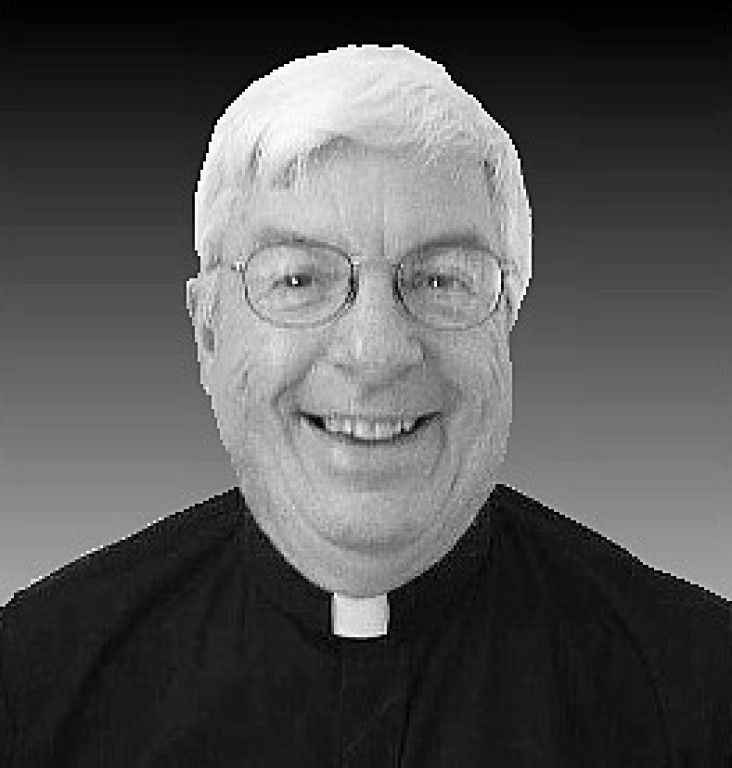 A Hope that is Reborn
A Hope that is Reborn
Homily for the Third Sunday of Easter – April 26, 2020
To begin my reflection for this Third Sunday of Easter, I want to share with you some beautiful words of encouragement and hope that were spoken during Holy Week in Rome. On Good Friday each year at the Vatican, the homily is delivered by the Preacher of the Papal Household, Fr. Raniero Cantalamessa.
Reflecting on the meaning of the crucifixion, Fr. Cantalamessa said:
The cross of Christ has changed the meaning of pain and human suffering….It is no longer punishment, a curse. It was redeemed at its root when the Son of God took it upon himself. What is the surest proof that the drink someone offers you is not poisoned? It is if that person drinks from the same cup before you do. That is what God has done: on the cross he drank, in front of the whole world, the cup of pain down to its dregs.
Then, reflecting on the world-wide experience of pandemic, Fr. Cantalamessa continued:
When, in the memory of humanity, have the people of all nations ever felt themselves so united, so equal, so less in conflict than at this moment of pain? ….We have forgotten about building walls. The virus knows no borders. In an instant it has broken down all the barriers and distinctions of race, nation, religion, wealth and power. …Let us not allow so much pain, so many deaths, and so much heroic engagement on the part of health workers to have been in vain. Returning to the way things were is the “recession” we should fear the most.
The following night, during the Easter Vigil service, Pope Francis offered a reflection on the hope and courage that can be ours, even in the midst of the pandemic. The Holy Father said:
Tonight we acquire a fundamental right that can never be taken away from us: the right to hope. It is a new and living hope that comes from God. It is not mere optimism; it is not a pat on the back or an empty word of encouragement, uttered with an empty smile. No! It is a gift from heaven, which we could not have earned on our own. Over these weeks, we have kept repeating, “All will be well”, clinging to the beauty of our humanity and allowing words of encouragement to rise up from our hearts. But as the days go by and fears grow, even the boldest hope can dissipate. Jesus’ hope is different. He plants in our hearts the conviction that God is able to make everything work unto good, because even from the grave he brings life….All you have to do is open your heart in prayer and roll away, however slightly, that stone placed at the entrance of your heart so that Jesus’ light can enter. You only need to ask him: “Jesus, come to me amid my fears and tell me: Courage!” With you, Lord, we will be tested but not shaken. And whenever sadness may dwell in us, we will be strengthened in hope, since with you the cross leads to resurrection, because you are with us in the darkness of our nights; you are certainty amid our uncertainties, the word that speaks in our silence, and nothing can rob us of the love you have for us
Our gospel reading for this Third Sunday of Easter, Luke 24:13-35, takes us back to a time shortly after the crucifixion of Jesus. Two disciples who are dispirited and have lost hope are sadly making their way back to their home village of Emmaus, going back to the life they knew before encountering the hope offered by Jesus Christ.
This gospel passage is about the restoration of hope. The two disciples are walking toward a kind of spiritual quarantine, away from the group of believers in Jerusalem who, like them, are quarantined by utter disappointment and enormous fear. Along the way, Jesus, the risen Lord, begins to walk along with the two, though they do not recognize him.
How do they come to recognition and belief? Jesus does two things. First, “beginning with Moses and all the prophets, he interpreted to them what referred to him in all the Scriptures.” Second, while they are at table, “he took bread, said the blessing, broke it and gave it to them.” Luke tells us that “with that their eyes were opened and they recognized him.” In other words, it was through the memorial that Jesus left his followers the night before he died, at the Last Supper. It was in the breaking of bread, in the Eucharist, in the Mass, that disappointment and fear were banished and hope restored. And what do the two instinctively do? “They set out at once and returned to Jerusalem where they found the eleven and those with them…” After dealing with their pain in isolation, they returned to the community to share and celebrate the good news. On that first Easter, hope was restored.
During this pandemic, this time of fear and isolation, we have rediscovered how much we need others, how much we need community. We have new heroes now, those who, like Jesus, are serving the needs of those who are stricken—the first responders, the nurses and doctors, the scientists and researchers, those who provide and sell the food and medications we need—the every-day saints who have accepted the challenge of serving rather than being served.
Through phone calls, emails and notes I have received, many of you have expressed your longing for the day when we can be released from our quarantined tombs and return to community, and to the Eucharist. One of the beautiful alternate Eucharistic prayers says it so well: “You are indeed Holy and to be glorified, O God, who love the human race and who walk with us on the journey of life. Blessed indeed is your Son, present in our midst when we are gathered by his love and when, as once for the disciples, so now for us, he opens the Scriptures and breaks the bread.” It is in the Eucharist that the miracle of Easter is made present for us, just as it was for the disciples at Emmaus.
A professor and motivational speaker, who specializes in resilient, hopeful living, shares an email he received from one of his former students.
She shared that in her life she had endured the murder of her son, followed by the death of her husband whose fragile health couldn’t survive the trauma of their son’s death, and then, following these horrors, the death of a nephew. She said that adjusting to life without the three of them had been and continues to be for her “a grief I never thought I could survive.” But then she added the single line that deeply touched me: “Only with God and our love village is it possible” (Robert J. Wicks, Heartstorming, p.83).
Some two thousand years ago, two disciples of Jesus recounted what had taken place on the way and how he was made known to them in the breaking of bread. Whenever we break bread in our “love village”, when we support one another with compassion, when we notice the pain others are experiencing, when we reach out to meet their needs, the resurrection miracle continues. The Emmaus gospel makes clear that, even in our darkest moments, we do not walk alone. Even from the grave our God brings life. And hope is reborn.
You might also like
Father's Homilies




